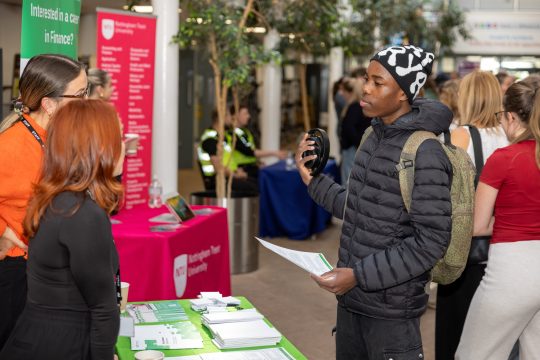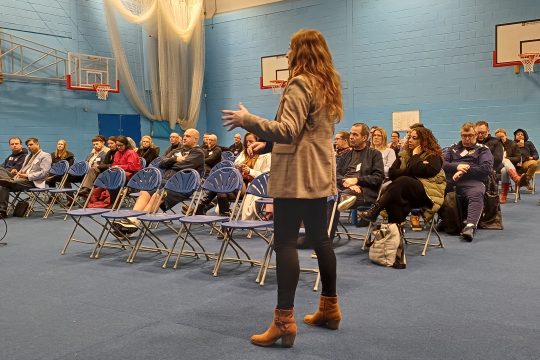Pastoral team collaboration key to increasing inclusion and impact
Ross Doohan is Careers Leader and Behaviour Lead at The Heights Blackburn, which is an alternative provision school. In this blog, he talks about how key a strong relationship between the pastoral team and the careers team is to a successful careers programme. Ross Doohan
Ross DoohanCareers Leader and Behaviour Lead, The Heights Blackburn
We all know that the whole point of a stable careers programme is to ensure our young people, whatever their background, fulfil their potential and find the pathway that is right for them after school or college.
Sometimes, however, there are things going on in that young person’s life that the careers leader might not be aware of and would be useful for them to know about to ensure that the careers programme is as effective as possible for that young person.

The recent updates to the Gatsby Benchmarks call for Careers Leaders to work closely with all key staff involved in a young person’s learning and care to ensure careers programmes are tailored to the needs of each student. This includes the additional needs of vulnerable and disadvantaged students, young people with SEND and those who are absent.
The changes to the benchmarks also emphasise that careers should form part of the school’s ongoing staff development for all staff who support pupils and that all staff should understand what is in the school or college’s programme of careers education and guidance.
For me, there is no team that this is more important for than the pastoral team.
They will have a much more rounded picture of what’s going on in that young person’s life; they will know which young people might be at risk of NEET and will know their family circumstances.
It’s vital that this information is shared, in the appropriate and relevant manner, with the Careers Leader who is tailoring a careers programme for the needs of that young person.
I’ve seen many times that there is a gap in communication and vital information isn’t transferred between the pastoral teams and careers teams. The whole-rounded picture of the child – for example what challenges they might be facing at home or why their attendance figures aren’t great – will help deliver a careers programme that is tailored effectively to their own specific needs and therefore lead to better outcomes for that young person.
In my school, we recognise that vital importance of seeing a 360-degree picture of each young person to ensure effective careers guidance. Our approach to career guidance is linked across the whole institution and we have strong systems in place to ensure smooth communication between the relevant teams. This helps us work creatively to engage the students.
Sometimes the Careers Leader goes on home visits with the pastoral teams to see the Year 11s and get to know the young person outside of the school setting. This has led to a useful meeting between the young person and the Career Leader and resulted in more effective careers interventions.
This is especially true for some students in challenging circumstances. For example, if a student has been suspended and they might only have a negative perception of the school; trying to have an effective careers meeting in the school premises is very unlikely to happen. There are a lot of deeper emotional issues going on; talking about their future won’t be effective at the school itself.
In cases like this, we’ve found it useful for the Careers Leader or adviser to attend home visits with the pastoral teams. We are also flexible about how and where personal guidance is offered, with careers advisers holding meetings online and in neutral settings like community hubs, as well as at home, if that’s a better fit for the young person in question.
Ultimately, we want to tailor the careers programme to the needs of that young person and a joined up and adaptable approach, as encouraged by the updated benchmarks, is the key to this.




